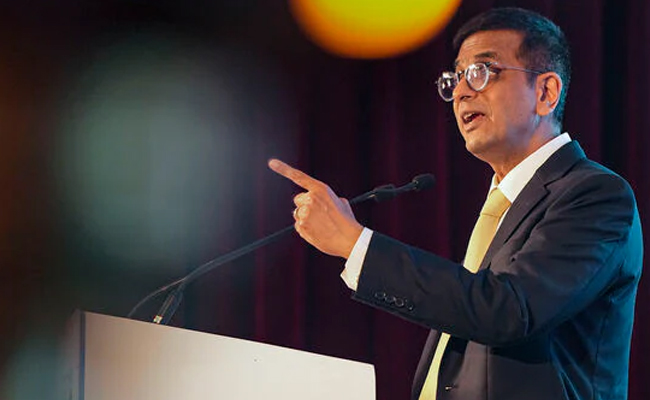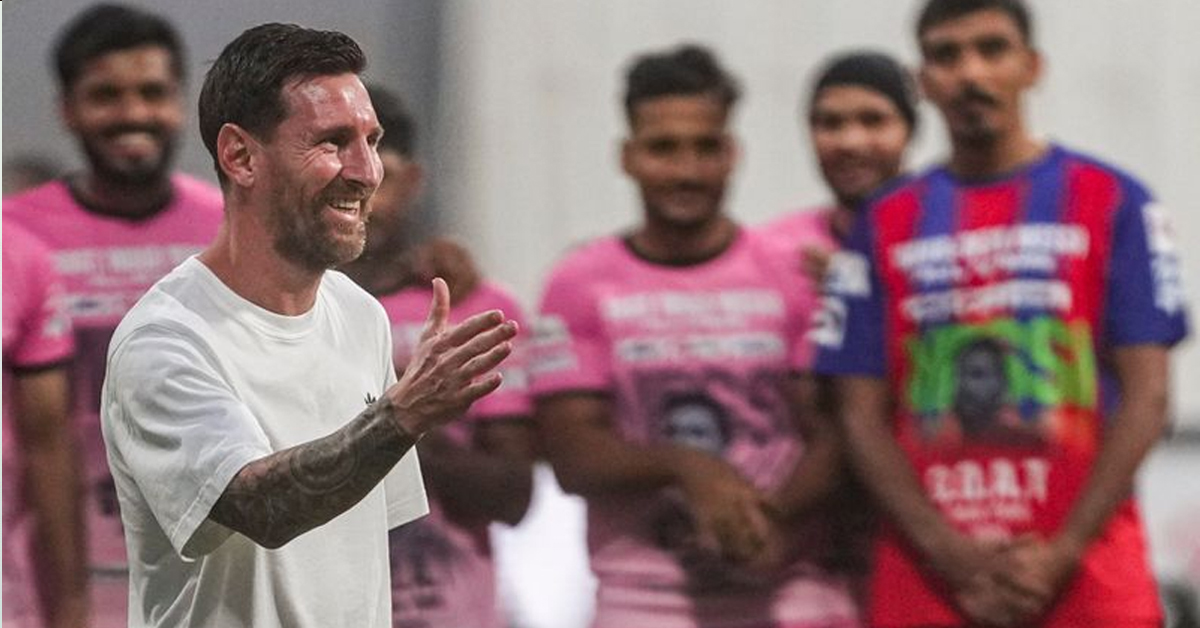Bengaluru: Chief Justice of India (CJI) DY Chandrachud has cautioned against the use of Artificial Intelligence (AI) in the criminal justice system, highlighting the risk of systemic biases being perpetuated through data used to train these technologies. Delivering the keynote address at the 11th Annual Conference of the Berkeley Centre for Comparative Equality and Antidiscrimination Law, organized by the National Law School of India University, Bengaluru, the CJI emphasized the potential for AI to disproportionately target marginalized communities.
CJI Chandrachud explained that if historical crime data used for AI algorithms reflect existing biases or systemic inequalities, these algorithms may continue to identify the same marginalized neighbourhoods as "high-risk" areas. "This can result in disproportionate surveillance and policing of already marginalized communities, exacerbating social inequalities and perpetuating cycles of discrimination," he stated.
The Chief Justice also pointed out the opacity of predictive policing algorithms, which often function as black boxes with non-transparent internal workings. He stressed the importance of "contextualization" in addressing AI challenges in India, given the country's diverse demographic patterns characterized by linguistic diversity, regional variations, and cultural nuances.
"We need to be vigilant about the origins of data and its potential biases, scrutinize the algorithms we employ for transparency and fairness, and actively seek to mitigate any unintended discriminatory effects," CJI Chandrachud urged, advocating for ethical and equitable engagement with AI.
Addressing broader issues of inequality, CJI Chandrachud linked climate change to social inequities, noting that marginalized groups such as women, children, disabled individuals, and indigenous people face heightened risks. He pointed out that wealthier individuals often have the means to protect themselves against climate impacts, while poorer communities are more vulnerable due to a lack of resources.
"Inequality thus becomes both a cause and consequence of climate change," he remarked, emphasizing the need for climate justice that recognizes differential impacts and involves affected communities in decision-making processes.
Let the Truth be known. If you read VB and like VB, please be a VB Supporter and Help us deliver the Truth to one and all.
Shivamogga: A total of 693.75 of river stretches across Karnataka are polluted, and water from several of these rivers is being supplied to towns and cities, the State government informed the Legislative Assembly.
According to a report published by The New Indian Express on Monday, replying to an unstarred question by Thirthahalli MLA Araga Jnanendra during the winter session in Belagavi, Forest, Environment and Biodiversity Minister Eshwar Khandre said rivers are classified into five categories, P1 to P5, based on Biochemical Oxygen Demand (BOD) levels, with P1 being the most polluted.
He reportedly said untreated domestic wastewater from urban and rural areas is the main reason for river pollution. Arkavati, Lakshana Teertha, Tungabhadra, Bhadra, Tunga, Cauvery, Kabini, Kagina, Krishna, Shimsha, Bheema and Netravati are the polluted rivers and so far, 112 polluted drainages along these rivers have been identified.
Khandre explained that rivers are classified into five pollution categories P1 to P5. The Arkavati River has been placed in the P1 category, while no rivers fall under P2 and P3. Tungabhadra, Bhadra and Shimsha are categorised under P4, and eight other rivers fall under P5.
Khandre allegedly said domestic wastewater from municipalities, towns and villages along riverbeds is being discharged into at least 17 rivers, identified by the Central Pollution Control Board (CPCB). This is the primary cause of river pollution.
According to the report, the minister said drinking water is being supplied from polluted rivers in districts such as Mandya, Ramanagara, Vijayapura and Shivamogga. In parts of Uttara Kannada, Ballari, Vijayanagara and Bagalkot, local bodies are also drawing water from polluted river sources.
In 2022-23, CPCB identified South Pinakini, Aghanashini, Sharavathi and Gangavali rivers too as polluted. But wrote to CPCB, stating that these rivers are not polluted and sought their removal from the list. An action plan is being prepared for the South Pinakini River, he said.
On remedial measures, Khandre reportedly said the Karnataka State Pollution Control Board is setting up sewage treatment plants as per the directions of National Green Tribunal.
As per the report, under 12 river rejuvenation plans, the state generates 817.31 million litres per day (MLD) of sewage. While 41 STPs with a capacity of 614.1 MLD are operational, 203.21 MLD of sewage remains untreated.
Work is underway to establish 19 STPs with a capacity of 248.91 MLD, while 39 more STPs with a combined capacity of 357.92 MLD are in the planning stage. Progress is being monitored and reported regularly to the NGT and the Union Ministry of Jal Shakti.
The minister reportedly said the state government gave its approval for underground drainage works worth Rs 535.56 crore in 2021 for 24 cities/towns besides Rs 523.80 crore for nine UGD projects.





